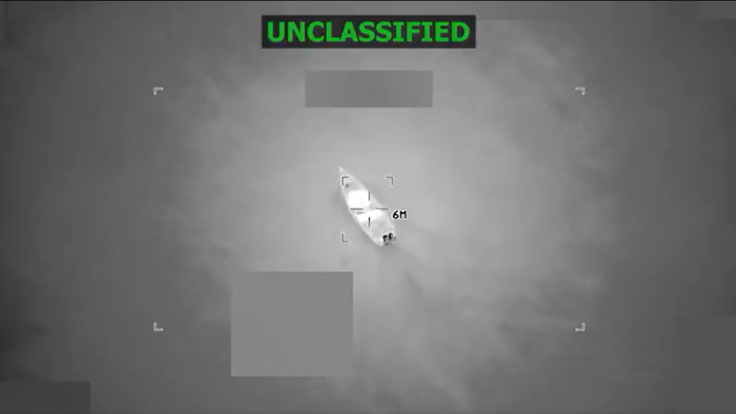
Trump administration officials told lawmakers in a classified briefing on Wednesday that U.S. forces carrying out airstrikes on suspected drug-smuggling vessels in the Caribbean and eastern Pacific often do not know the identities of those onboard before launching the attacks, according to reporting from CNN. At least 16 strikes have been conducted since September, killing at least 65 people, according to official claims.
During Wednesday's briefing, Secretary of State Marco Rubio, Defense Secretary Pete Hegseth, and an attorney from the White House Office of Legal Counsel said the campaign relies on intelligence linking vessels to drug-trafficking organizations, rather than identification of individuals.
The officials "acknowledged that they do not necessarily know the individual identities of each person on board a vessel before they attack it," CNN reported, citing multiple sources familiar with the meeting.
Democratic Sen. Mark Warner, the ranking member of the Senate Intelligence Committee said after the briefing that he believes U.S. intelligence has "visibility" into drug flows but questioned why lethal force was necessary rather than interdiction while Rep. Gregory Meeks told CNN he heard "nothing" in the briefing that convinced him the strikes are lawful, adding that the administration did not share evidence tying passengers to drug trafficking.
In an interview with BBC published on Thursday, former International Criminal Court chief prosecutor Luis Moreno Ocampo became the latest voice to question the legality of the strikes, claiming the campaign would qualify under international law as a crime against humanity and describing it as a "planned, systematic attack against civilians during peacetime."
Moreno Ocampo said suspected traffickers "are criminals, not soldiers," and emphasized that civilians should be investigated and prosecuted, "but not killed." The White House rejected that assessment, saying Trump acted "in line with the laws of armed conflict" to protect the U.S. from narcotics networks "trying to bring poison to our shores." It dismissed the ICC as lacking jurisdiction.
International concern over the strikes has mounted in recent weeks. On October 31, UN human rights chief Volker Türk called the strikes "unacceptable," urging the U.S. to halt operations and prevent "extrajudicial killing of people aboard these boats." His office warned of "mounting human costs."
The buildup of U.S. naval forces in the region — including deployment of the USS Gerald Ford strike group — has fueled questions about potential expansion into Venezuelan territory. Administration briefers told lawmakers the current legal authorization does not allow strikes on land targets, including inside Venezuela, though officials confirmed the White House is seeking a new legal opinion that would provide that authority.
"What is true one day may very well not be the next," one U.S. official said, adding that Trump has not decided "how he will handle Venezuela."
© 2025 Latin Times. All rights reserved. Do not reproduce without permission.






